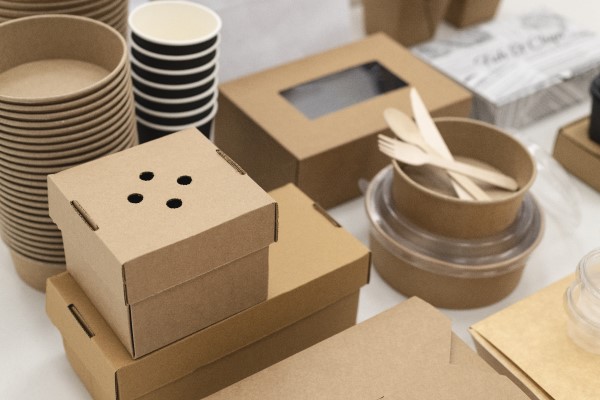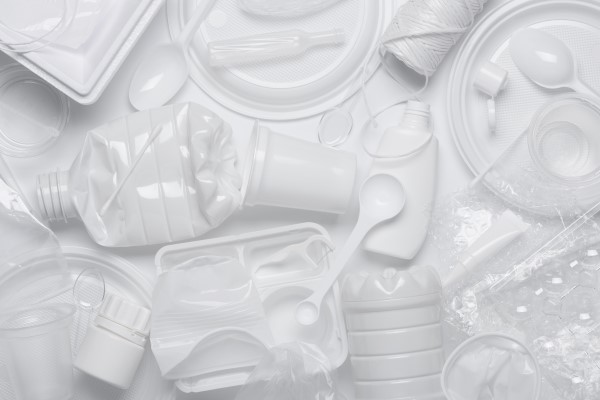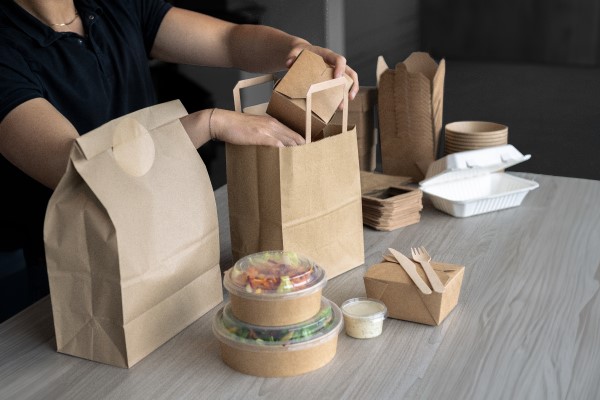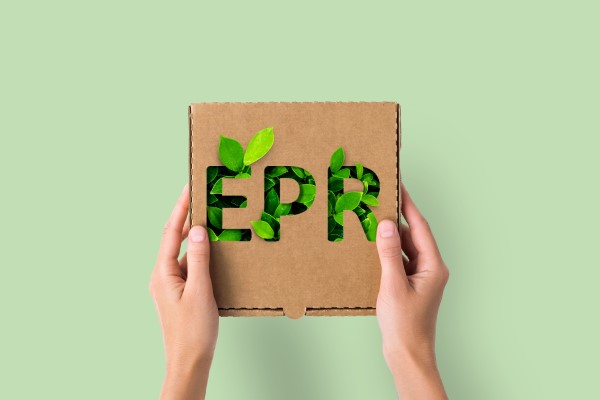Food Packaging Challenges: Addressing Plastic Pollution, the Single-Use Plastics Ban, and Extended Producer Responsibility
Over the years, the world has become increasingly reliant on plastics, thanks to their affordability, strength, and versatility. From the products we buy to the tools we use daily, plastics have woven themselves into the fabric of our lives. They safeguard our food, make transportation easier, and even form the basis of some of our clothing. But this dependence has come at a cost—vast quantities of plastic products are discarded after just one use, creating a monumental environmental issue.
Every year, humanity produces over 350 million metric tons of plastic waste, a number that could triple by 2060 unless policies regarding plastic production, consumption, and disposal change. The United Kingdom alone contributes significantly to this problem, with UK households discarding an estimated 100 billion pieces of plastic packaging annually, most of which stems from food and beverage packaging.
As global awareness of environmental issues grows, the role of sustainable packaging becomes increasingly vital. Policies like the Single-Use Plastics Ban and Extended Producer Responsibility (EPR) programs are crucial in driving meaningful change, compelling businesses to adopt eco-friendly alternatives and ensuring manufacturers are held accountable for the lifecycle of their products.
Before delving into these policies, it’s worth understanding what food and beverage packaging entails and why it accounts for such a large proportion of our plastic waste.
Food and beverage packaging refers to any material or container used to protect, preserve, and present food and drink products from production to consumption. This packaging employs a variety of materials, including cardboard, plastic, glass, metal, and paper, each tailored to specific products and purposes.
Beyond its primary functions, packaging serves practical roles such as enabling efficient transport, providing essential product information, and acting as a marketing tool to enhance brand appeal. However, these functionalities often lead to overuse, contributing to the staggering amount of plastic waste generated annually.
Several factors contribute to the overwhelming amount of plastic waste associated with food and beverage packaging:
The UK’s takeaway and fast-food industry has undergone a dramatic evolution over recent decades. Once offering limited options, it has grown into a sophisticated sector catering to diverse tastes and preferences. This trend shows no signs of slowing down.
The Online Food Delivery market is projected to grow by 5.59% annually between 2024 and 2029, driven by hectic lifestyles and a desire for quick, convenient meal solutions. The pandemic accelerated this growth, as lockdowns and social distancing measures pushed consumers toward food delivery services as a safe and convenient alternative.
Naturally, this surge in demand has led to a troubling rise in packaging waste. This is where the single-use plastics ban comes into play.
Another major contributor to the UK’s plastic waste crisis is music festivals. These events bring people together to celebrate music and enjoy food and drinks, yet they often leave behind a trail of waste.
Despite growing awareness about plastic pollution, festivals still heavily rely on single-use plastics due to their affordability and convenience. This makes them far more appealing to organizers and vendors compared to sustainable alternatives, which can cost up to three times as much.
In 2022 alone, 6.5 million festivalgoers attended events across the UK, generating approximately 1.3 million food containers and 2 million plastic bottles as waste. Many festivals are now adopting sustainability initiatives, such as promoting reusable containers, encouraging attendees to bring their own bottles, and implementing recycling programs.
For example, Glastonbury, known for its strong environmental stance, banned the sale of single-use plastic bottles in 2019. The festival now encourages the use of reusable bottles and provides numerous water refill stations to minimize waste. Other festivals are following suit.
Research indicates that people in England use around 2.7 billion pieces of single-use plastic cutlery and 721 million single-use plates annually. Unfortunately, only 10% of these items are recycled. To put this into perspective, if we lined up 2.7 billion pieces of cutlery, they would circle the Earth more than eight times.
Recognizing the severity of the issue, England implemented a ban on several single-use plastic items starting October 1, 2023, aimed at reducing plastic waste and its environmental impact.
This ban covers polystyrene food and drink containers, which are commonly used for takeaways and fast food. These non-biodegradable containers cause significant environmental damage once discarded and are no longer permitted for sale online or in stores. The ban also extends to cutlery, drink stirrers, and balloon sticks.
Additional restrictions apply to plates, bowls, and trays. While these items are restricted, businesses can still supply them if they are pre-filled or filled at the point of sale. For instance, pre-filled salad bowls or ready meals packaged in trays fall under this exemption.
However, the ban does not apply to plates, trays, and bowls used as packaging for shelf-ready pre-packaged food items. These will be addressed through the government’s Extended Producer Responsibility (EPR) plan. There are also exemptions for medical devices and specific contexts where single-use plastic straws and cotton buds are necessary.
By enforcing this ban, England is pushing for more sustainable practices to reduce plastic waste and protect the environment.
Wales introduced its own ban on October 30, 2023, while similar restrictions were already in place in Northern Ireland and Scotland.
As the UK moves towards reducing plastic waste, businesses are actively seeking sustainable replacements for banned or restricted items. As a carbon-neutral company, we are committed to offering eco-friendly food and beverage packaging solutions that align with new regulations and are often the preferred choice for many businesses.
Food Containers & Trays
Kite’s takeaway boxes are made from kraft paper, which is 100% recyclable, biodegradable, and commercially compostable. Unlike polystyrene, which harms the environment, these boxes support responsible disposal while accommodating a variety of cuisines, from burgers to fish and chips. We also offer burger boxes made from bagasse, a sugarcane byproduct. Bagasse decomposes into nutrient-rich compost and is rapidly renewable, making it an excellent substitute for plastic or polystyrene containers.
Coffee Cups
Our coffee cups are crafted from 100% recyclable virgin food-grade double-walled paper, minimizing their environmental impact. The accompanying lids, made from virgin food-grade PS plastic, prioritize food safety and can also be recycled.
Whether you’re serving a latte or an americano, these cups come in various sizes to cater to different drink volumes.
Wooden Cutlery
Made from birch wood, our wooden cutlery is 100% commercially compostable and environmentally friendly. Unlike plastic utensils, which linger in landfills, this alternative doesn’t contribute to pollution. It’s cost-effective for takeaway businesses without sacrificing quality. It pairs well with main meals, sides, desserts, and even hot drinks.
Alternative Plates
If you’re looking for an eco-friendly alternative, our takeaway boxes serve as a convenient replacement for plates. Crafted from 100% recyclable and biodegradable materials, these plates are a guilt-free option for serving delicious meals.
Kraft Paper Bowls
These bowls, made from sustainable kraft paper, are fully recyclable and biodegradable. Unlike their plastic counterparts, they don’t harm the environment. Even the polypropylene lid is widely recyclable.
Explore more eco-friendly food packaging solutions.
Extended Producer Responsibility (EPR) aims to address the environmental costs associated with products throughout their entire lifecycle, focusing specifically on packaging waste management.
EPR represents a fundamental shift in responsibility for managing packaging waste. Instead of relying solely on taxpayers and the government, this scheme places the onus on producers and importers of packaging materials, holding them accountable for the sustainable disposal of the packaging they introduce into the UK market.
Under EPR, obligated packaging producers are responsible for funding and actively participating in the entire waste management process, including collecting, sorting, treating, and recycling packaging waste. By shifting the financial burden to those involved in the packaging supply chain, it also encourages the use of more sustainable packaging materials.
An obligated producer is a business that handles 50 tonnes or more of packaging materials annually and has a turnover of £2 million or more. These entities fall under the EPR scheme and are specifically defined as ‘packaging producers’ in the new regulations. Their responsibilities extend beyond mere compliance, encompassing sustainable practices and environmental impact considerations.
Obligated producers must:
What a business needs to do to comply with EPR depends on whether they are classified as a ‘small’ or ‘large’ organization.
Small organizations must have a turnover between £1 million and £2 million and handle between 25 and 50 tonnes of empty packaging or packaged goods in the UK.
Large organizations must have an annual turnover of £2 million or more and handle more than 50 tonnes of packaging or packaged goods within the UK.
By holding obligated producers accountable, we take a significant step toward a more responsible and circular economy.
We offer invaluable assistance with EPR compliance through our government-accredited scheme. Unlike others, Kite Environmental Solutions (KES) guides you through the entire process, helping with:
For more information, please visit https://www.packagingregs.co.uk or contact us at 024 7642 0080.
TV stand is a piece of furniture designed to support and display a television set. It is commonly used to hold the TV at a comfortable viewing height, provide stability, and offer storage space for related devices and accessories.
TV stands come in various styles, sizes, and materials to accommodate different preferences and room décors. Some common types include:
Entertainment Center: These are larger TV stands that typically encompass multiple shelves, cabinets, and drawers. They can hold not only the TV but also audio/video components, gaming consoles, DVDs, and other media.
Console Stand: Console stands are sleek and minimalistic, designed to hold the TV on top while providing a couple of shelves or compartments below for basic storage needs. They are often made of wood, metal, or a combination of both.
Wall-Mounted Stand: These are not traditional stands but rather wall-mounted brackets or shelves that securely hold the TV on the wall. They are ideal for saving space and creating a clean, modern look. Wall-mounted stands may have adjustable features for swiveling or tilting the TV.
Corner Stand: Corner TV stands are specifically designed to fit in the corner of a room. They have a triangular or wedge-shaped design to maximize space utilization while providing storage options.
Mordern TV Stand,Wooden TV Stand,Wall TV Stand,Corner TV Stand,Bedroom TV Stand,Simple TV Stand,TV Stand Cabinet Ningbo Greenly Industy Co.,LTD. , https://www.chinagreenly.comTackling Plastic Pollution: The Impact of the Single-Use Plastics Ban and Extended Producer Responsibility
Understanding Food and Beverage Packaging

Why Does Food Packaging Generate So Much Plastic Waste?
The Rise of Food Delivery Services
Plastic Waste at Music Festivals

The Single-Use Plastics Ban

Sustainable Alternatives: Kite’s Eco-Friendly Packaging Solutions

Extended Producer Responsibility: A Circular Economy Approach
What Exactly Is EPR?

Who Is an Obligated Producer?
What Are the Obligations of Packaging Producers?
How Can Kite Help With EPR?